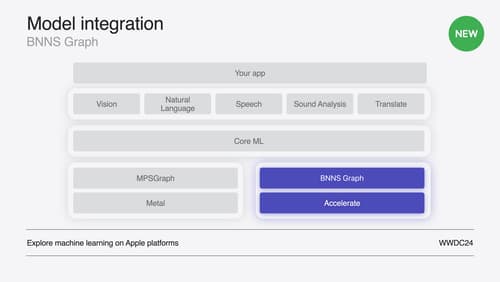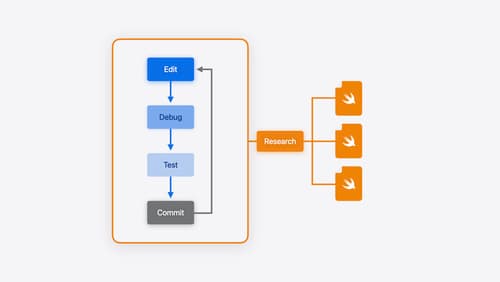how Xcode uses Binary code
Asked on 2024-07-31
1 search
Xcode uses binary code in several ways to enhance the development process. Here are some key points:
-
Implicitly Built Modules:
- Traditionally, Xcode has used implicitly built modules where compilers manage building modules without Xcode being aware of their existence. This can lead to long-running tasks and inefficiencies because each compiler might build a module independently, causing delays if another task is waiting for that module to be built (Demystify explicitly built modules).
-
Explicitly Built Modules:
- Xcode 16 introduces explicitly built modules, which improve parallelism and build efficiency. This approach lifts the implicit work of building modules into explicit build system tasks. Xcode splits the compilation of each source file into three phases: scanning, building modules, and building the original code. This allows for better coordination and faster builds (Demystify explicitly built modules).
-
Swift Code Compilation:
- When building Swift code, Xcode may need to build binary versions of modules like SwiftUI. This process happens implicitly and can cause slowdowns. Explicitly built modules help mitigate this by reusing binary modules and improving parallelism (What’s new in Swift).
-
Generative Models and Code Completion:
- Xcode 16 leverages generative models to enhance code completion. These models are trained specifically for Swift and Apple SDKs, using project symbols to customize suggestions. This feature runs locally on your Mac, ensuring privacy and fast results (Platforms State of the Union).
-
Real-time ML Inference:
- For machine learning tasks, Xcode compiles the
mlpackageinto a binarymlmodel Cfile, which is then used to instantiate a BNNS graph for real-time processing. This process involves creating an optimized graph object that contains kernels and memory layouts for intermediate tensors (Support real-time ML inference on the CPU).
- For machine learning tasks, Xcode compiles the
Relevant Sessions

Support real-time ML inference on the CPU
Discover how you can use BNNSGraph to accelerate the execution of your machine learning model on the CPU. We will show you how to use BNNSGraph to compile and execute a machine learning model on the CPU and share how it provides real-time guarantees such as no runtime memory allocation and single-threaded running for audio or signal processing models.

Platforms State of the Union
Discover the newest advancements on Apple platforms.

Xcode essentials
Edit, debug, commit, repeat. Explore the suite of tools in Xcode that help you iterate quickly when developing apps. Discover tips and tricks to help optimize and boost your development workflow.
